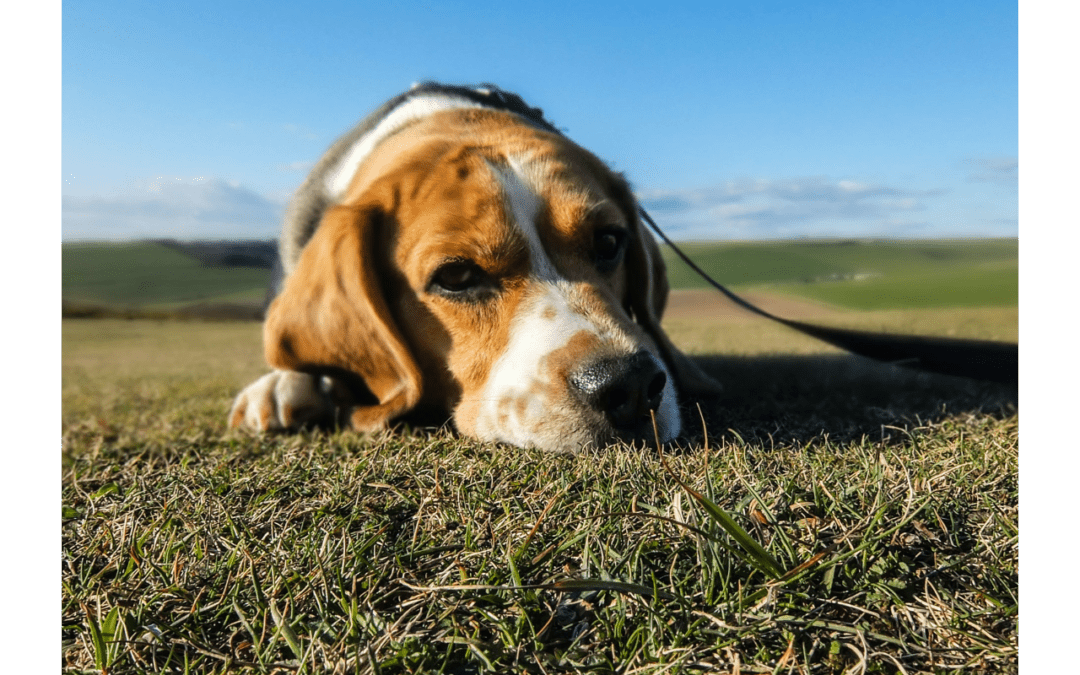March is Pet Poison Prevention Month, and it is the time to think about how to keep your pet safe from toxic substances. One topic that has gotten more attention in recent years, yet still seems like an unknown, is Marijuana. What is the deal with pets and marijuana? How about CBD? Hemp? What is the difference anyway, and is it really a big deal if your pet gets exposed to marijuana? In this blog, we are going to discuss the differences between marijuana, hemp, and CBD and go over some of the potential threats they may pose to your animal companion.
Marijuana, or Cannabis, is a popular plant that is consumed by people worldwide. The dried flowers/tops of the Cannabis plant may be smoked/consumed/used topically for recreational or medicinal purposes. The stems of the plant are known as hemp and may be used to make rope, canvas, and other materials. Hemp plants are legal to grow if the plants contain less than 0.3% THC. Cannabinoids, or CBD, are components in the Cannabis plant that have pharmaceutical properties. The amounts of CBD, as well as the type of CBD, can vary by the type and age of plant and how it has been grown, handled, harvested, and various other factors. THC is a cannabinoid that is found in the flowering tops of the plant and is the psychoactive chemical that makes it a recreational/pharmaceutical drug. It can contain from 1-10% THC. Other cannabinoids are not considered recreational drugs and offer other medicinal properties that may be used, in humans, to treat pain, inflammation, anxiety, nausea, and help with sleep disorders. Although some CBD products are marketed and designed for pet use, they are often poorly regulated and not actually legal since they are not approved by the Federal Drug Administration (FDA). A veterinarian cannot legally dispense or prescribe CBD to a pet or patient. The only FDA-approved CBD medication is Epidiolex. It is a drug containing cannabidiol (CBD) labeled for the control of juvenile seizures associated with two rare diseases. It is difficult to find and can be quite expensive to purchase. (1)
There are many other CBD products on the market that are available and affordable. Unfortunately, since the FDA does not recognize any of these products as legal, the makers of such products are not held to any quality standards, and their products do not have to be proven effective. In fact, the FDA has performed testing that has shown that CBD content may differ from what the label says and in many products was either absent or nearly absent (FDA test source). Proper dosing for pets is another area of question. There have been few studies completed on CBD in pets and proper dosing for various conditions is unknown. Also, effective CBD doses can become ineffective as the body becomes tolerant to the product, and an increase in dosing may be needed to produce desired effects. That being said, it does not mean that CBD products are useless supplements. There is anecdotal evidence that CBD does help with seizures, pain, and nausea in companion animals. If you do want to try CBD products for your pet, we recommend you do some research. Choosing manufacturers that offer third-party testing of their products will help ensure you can offer a consistent dose to your pet. Find multiple sources for dosing, start low and modify as needed for your pet. (1)
If you choose to use CBD products with your pet, be sure they do not contain THC; THC is not safe for pets. The most common toxicity cases that are seen in veterinary hospitals are accidental ingestion of marijuana. Symptoms include incoordination, listlessness, hyperreactivity, twitching, dilated pupils, decreased heart rate, urinary incontinence, and heavy sedation or coma. If caught early (less than 30 minutes post-ingestion), inducing vomiting and administering activated charcoal may be helpful. Supportive care, including fluid therapy and temperature control, is important until the THC wears off. THC is stored in fat cells and effects can last for multiple days. Fatality is unlikely, but without supportive care, pets can get very ill. Keep marijuana products away from your pet(s), and if your pet does eat products containing THC, please be honest with your veterinarian so we can treat your pet as quickly as possible. (1)
Here is a video that illustrates some of the symptoms: Cannabis intoxication video
I realize this is quite a bit of information that is not black and white and may get you asking even more questions. More studies are underway currently, and hopefully, we will get more information soon. For now, focus on these key points: keep your pet away from THC; if you are going to use CBD product, be sure to do your research, buy a quality product and be careful with the dosing. Keeping your pet safe from toxic substances is an ongoing effort. You may not know what got dropped on the trail in front of you or what “treat” someone left sitting in the park that your pet may find. Try your best to keep your pet from eating unknown substances and keep known toxins out of reach. If you have any questions, please give us a call or call Poison control. Be well and work hard to keep your pet safe!

